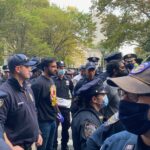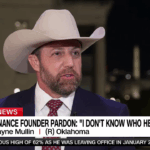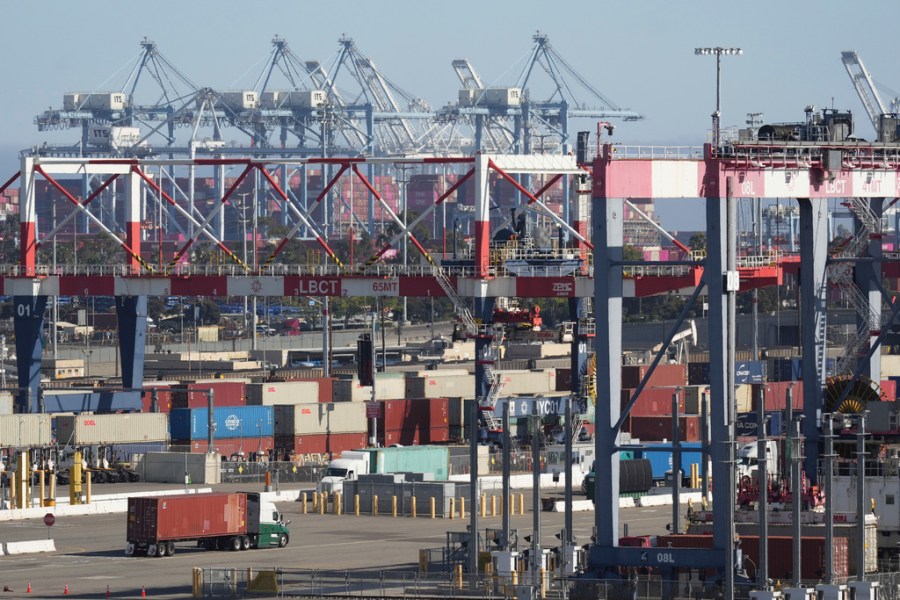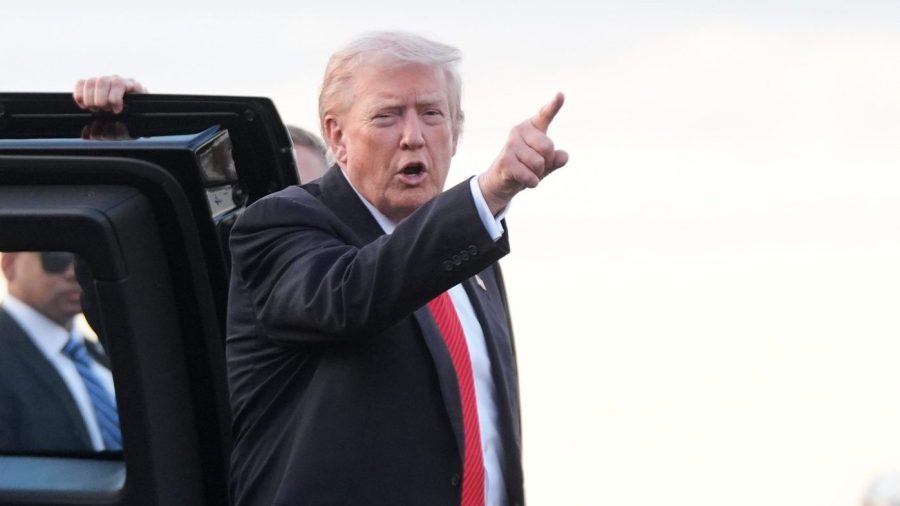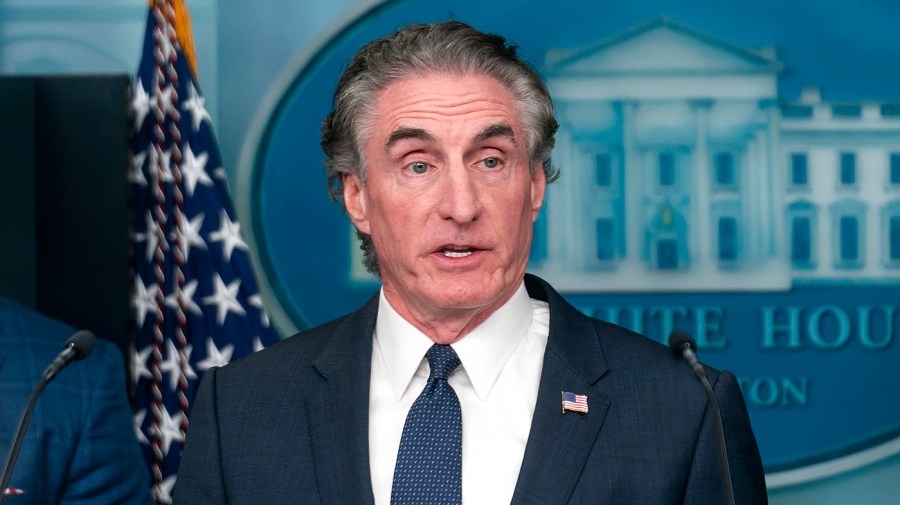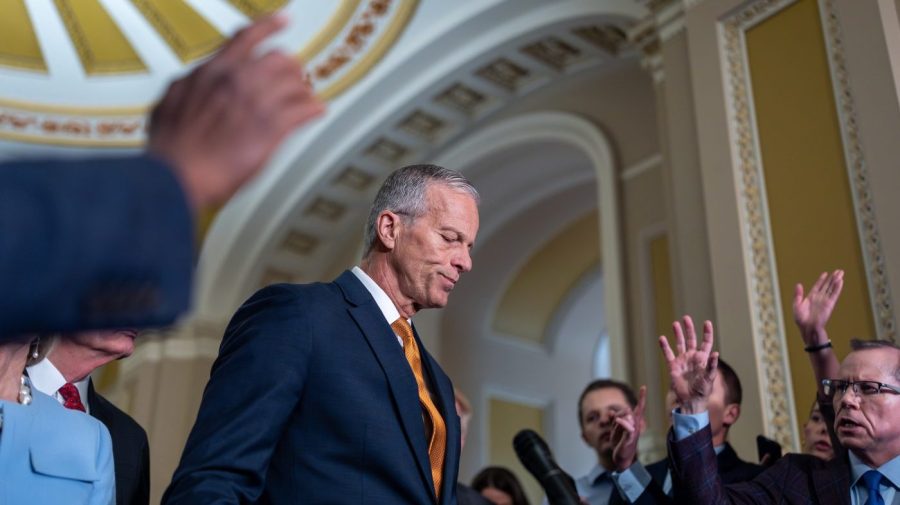In April, President Trump imposed tariffs on imports from every nation in the world, claiming an emergency warranted those new taxes. He called it “liberation day.” This week, the Supreme Court will decide whether the International Emergency Economic Powers Act authorizes the president to tax imports. That is how the administration has framed the two cases before the court.
But to see the issue this way unduly minimizes what is at stake. The government’s reading enables the executive to tax everything under the sun. The Supreme Court should extricate us from this misreading of the International Emergency Economic Powers Act and the burgeoning rule by executive fiat.
The law is a tad technical. If the president declares “an unusual and extraordinary threat” to the United States, he can “regulate, . . . compel, void . . . any acquisition, holding, . . . use, . . . transportation, importation or exportation of . . . any property in which any foreign country or a national thereof has any interest by any person, or with respect to any property, subject to the jurisdiction of the United States.” That is a sweeping grant of power that the executive wants to read as broader still.
The government wants us to focus on two words — “regulate … importation.” It insists that these words grant the president vast power to impose tariffs. Yet the implications of its reading are far more ominous. First, if “regulate” includes authority to lay taxes, then the International Emergency Economic Powers Act bypasses the careful delegations of tariff authority found in other parts of federal law. For instance, in the 1974 Trade Act, Congress granted the president limited tariff authority. The government’s reading of the law renders this and other grants superfluous.
Second, if the government is right, then the president may tax “any acquisition, holding, . . . use, . . . transportation,” of “any property” owned by foreign nations and nationals. About 25 million foreign nationals live in the U.S. Can the president declare a national emergency and tax all their acquisitions and uses of property? Can he, for instance, tax their daily use of their cars? Can he tax their consumption of broccoli?
There is more. If a U.S. person owns property in which a foreign nation or person has an economic interest, the president can tax that property — its acquisition, holding, use, etc. So, if I rent a house from a foreigner, the president can tax my rental contract. Or so the government’s reading of the International Emergency Economic Powers Act signals.
The government’s expansive interpretation turns in part on the word “regulate.” That word, or its cognates, is littered throughout the statutes of the United States. If the word “regulate” encompasses the power to lay taxes, then a whole host of statutes give dozens of agencies the authority to inflict taxes because other portions of federal law grant authority to “regulate” to various entities. For instance, the administrator of the Judicial Conference of the United States has authority to “regulate” the pension of the judges of the Court of Federal Claims. Can the administrator tax those pensions? If the government wins, Congress has inadvertently scattered the taxing power to a host of bureaucracies. If you favor higher taxes, it appears that the executive can easily accommodate your preference, without ever going to Congress.
The government might reply that this parade of horribles is unlikely, for the executive must first determine that there is “an unusual and extraordinary threat.” However, these two cases belie any hope that presidents will be restrained. Trade deficits have existed for decades. The perennial trade deficit does not constitute an emergency any more than any other longstanding problem does. This is akin to saying that hair loss, or rudeness, constitutes an emergency. No one favors either. But they are common enough.
Furthermore, the president has imposed tariffs on nations with whom we have a trade surplus. For these tariffs, the “unusual and extraordinary threat” seems nothing more than the president’s sense that these trade surpluses should be higher still.
I have no quarrel with the policy. I favor the president’s attempt to renegotiate the world trade order. For national security reasons, the United States must maintain a strong, broad industrial base. But the president lacks the authority to impose tariffs willy-nilly merely because he feels we are getting “ripped off.” The object of his longstanding fixation — the trade deficit — does not constitute “an unusual and extraordinary threat.”
The Framers established a separation of powers for a reason, and we ought not lightly read federal statutes that grant broad powers as if they are broader still.
Saikrishna Prakash is a law professor and Miller Center fellow at the University of Virginia and the author of “The Presidential Pardon: The Short Clause with the Long, Troubled, History” (Harvard 2026)







